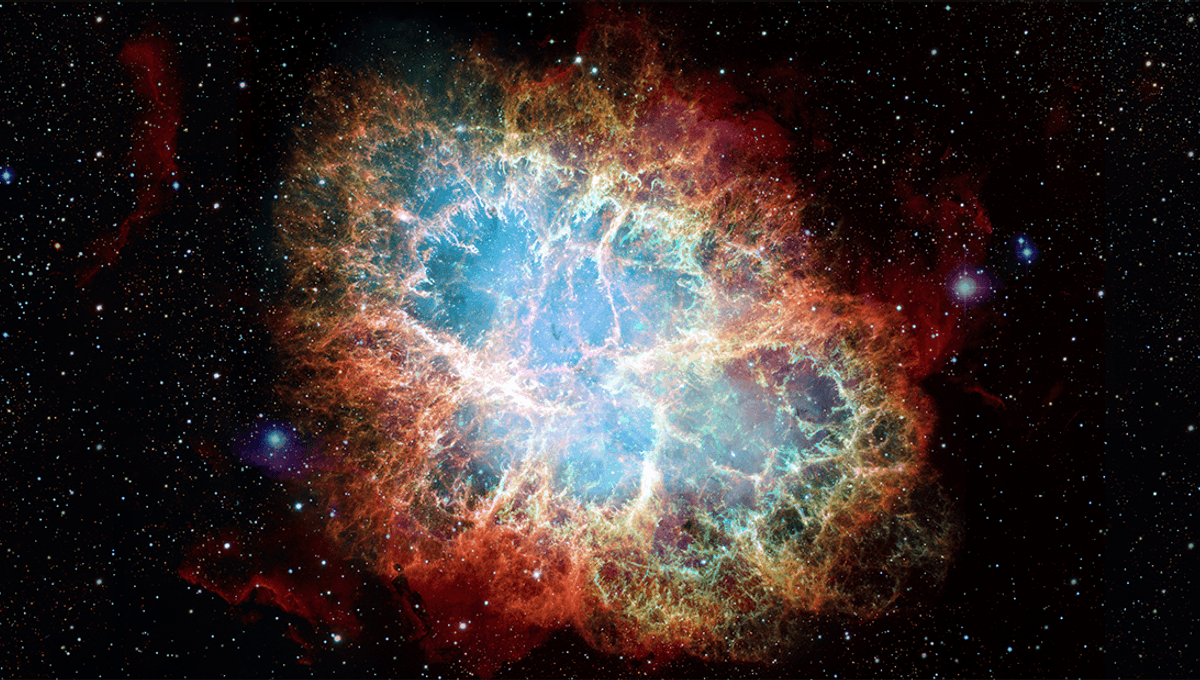
A team of astrophysicists running numerical simulations believe that water may have existed a lot earlier in the universe than we thought. According to the new study, the life-giving compound may have pre-dated even the first galaxies.
ADVERTISEMENT
Hydrogen was the first element to be produced in the universe, as it cooled enough after the Big Bang for electrons to bind to a solo proton. Oxygen, the O in H20, would not come about until later, forged in stars at least 10 times more massive than our own, and towards the ends of their life.
According to simulations by a team from the University of Portsmouth, UK, hydrogen and oxygen could have teamed up a lot earlier, perhaps just 100-200 million years after the Big Bang. Looking at core-collapse supernovae and population III supernovae, the team found that both types of star produced dense clouds of gas where water formed, within the simulations.
“After the Big Bang, the universe was like a hot soup of particles (i.e. protons, neutrons, and electrons). When the universe started cooling, the protons and neutrons began combining into ionized atoms of hydrogen (and eventually some helium),” NASA explains. “These ionized atoms of hydrogen and helium attracted electrons, turning them into neutral atoms – which allowed light to travel freely for the first time, since this light was no longer scattering off free electrons.”
Carbon and oxygen were not formed during the Big Bang but emerged later within stars. These essential elements, found in all living organisms, are produced through nuclear fusion in stars. The earliest stars were massive and short-lived, rapidly burning through hydrogen, helium, and lithium and producing heavier elements. When these stars exploded at the end of their lifecycles, they scattered carbon and oxygen across the universe. These heavier elements helped form new stars and planets.
Scientists believed that oxygen fired into the cosmos as these large stars went supernova combined with hydrogen, the most abundant element, over the course of billions of years.
“Before the first stars exploded, there was no water in the Universe because there was no oxygen. Only very simple nuclei survived the Big Bang – hydrogen, helium, lithium, and trace amounts of barium and boron,” Dr Daniel Whalen of the University of Portsmouth’s Institute of Cosmology and Gravitation, said in a statement.
ADVERTISEMENT
“Oxygen, forged in the hearts of these supernovae, combined with hydrogen to form water, paving the way for the creation of the essential elements needed for life.”
The main discovery, Whalen explains, is that primordial supernovae created water in the universe before the first galaxies even formed. This means water was already a fundamental component of those early galaxies.
“Although the total water masses were modest, they were highly concentrated in the only structures capable of forming stars and planets. And that suggests that planetary discs rich in water could form at cosmic dawn, before even the first galaxies,” Whalen said.
While an interesting possibility, and one that suggests the conditions necessary for life as we know it may have been around earlier than we thought, we would need a lot more evidence through observations before the matter is deemed settled. As yet, we haven’t even observed the population III stars modeled by the team, thought to have been the first stars to form after the Big Bang.
ADVERTISEMENT
The study is published in Nature Astronomy.
Source Link: Water May Have Formed Soon After The Big Bang, Billions Of Years Earlier Than We Thought